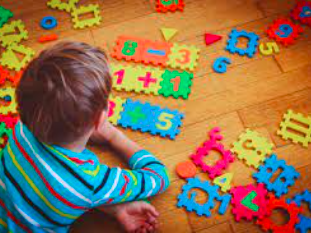Introducing math to young children doesn’t have to mean worksheets and flashcards. In fact, some of the best early math learning happens through play. Simple, age-appropriate games can help preschoolers and early learners grasp basic math concepts like counting, number recognition, sorting, and shapes—all while having fun. When math is playful, children are more engaged, and they develop a positive attitude toward learning that lasts.
Why Math Games Matter in Early Childhood
Early childhood is a critical period for building foundational skills, and math is no exception. Games that incorporate numbers, patterns, and problem-solving strengthen children’s cognitive development and help them become more confident learners. Math games also encourage communication, cooperation, and critical thinking—skills that are essential not only in academics but also in everyday life.
Top Game Ideas to Support Math Growth
-
Number Hunt
Hide numbers around the room and let children find and match them to a number chart. This game reinforces number recognition and sequencing. -
Shape Sorters
Classic shape-sorting toys help children learn to identify and categorize shapes, which is an early geometry skill. -
Dice Rolling Games
Use large foam dice to practice counting and addition. Children can roll the dice and count the total number of dots or compare which number is bigger. -
Board Games with Counting
Simple board games like “Chutes and Ladders” or homemade versions with numbered steps are perfect for teaching one-to-one correspondence and number progression. -
Sorting and Grouping Activities
Have children sort objects by color, size, or type. This introduces classification and comparison, which are key early math concepts. -
Pattern Making with Beads or Blocks
Let children create repeating patterns with colored beads or building blocks. Recognizing and extending patterns is a vital pre-math skill. -
Hopscotch with Numbers
This outdoor game adds a physical element to number learning. Children jump through numbered squares while practicing number recognition. -
“Store” Role-Play
Set up a pretend shop where children can “buy” items using play money. This introduces counting, number value, and simple addition.
Encouraging a Love for Learning Through Play
When math is woven into playtime, it becomes a natural part of a child’s world. These kinds of games not only support cognitive development but also boost a child’s confidence in problem-solving. Most importantly, they help children experience math as something fun, familiar, and rewarding.
By making early math engaging through simple games, parents and educators lay the groundwork for a lifelong interest in learning. Whether at home or in the classroom, turning everyday moments into playful math experiences is one of the best ways to help children thrive.


